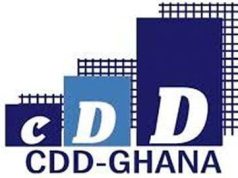Dr. John Osae-Kwapong, Project Director of the Democracy Project, has raised concerns about the ongoing lack of trust in Ghana’s Electoral Commission, underscoring the potential risks this poses to the integrity of the country’s electoral process.
Speaking in an interview on JoyNews’ Newsfile, Dr. Osae-Kwapong emphasized that the erosion of trust significantly impacts political dynamics, urging that this issue be addressed to avoid further polarization and instability.
“When there’s a lack of trust, political parties become more vigilant, almost on high alert,” he explained. “They feel compelled to protect the integrity of the process, ensuring that no one manipulates the results at their expense.” This heightened vigilance, he noted, can fuel political tension and division, which, if left unchecked, could escalate into unrest.
The credibility of the Electoral Commission has been a subject of controversy, particularly following disputed election outcomes. Dr. Osae-Kwapong pointed out that the ongoing suspicion surrounding the Commission exacerbates these tensions, as both political parties and the public grow uncertain about the fairness of the electoral process.
He warned that if these concerns are not effectively addressed, they could further destabilize Ghana’s political environment, potentially undermining the country’s democratic framework. However, Dr. Osae-Kwapong also acknowledged the progress made by the Electoral Commission over the years, stating, “Yes, the Electoral Commission has faced some challenges, but we can’t ignore the progress that has been made over the years.”
In light of persistent allegations of electoral fraud and manipulation, Dr. Osae-Kwapong urged stakeholders to focus on the positive strides made within the electoral system, rather than engaging in conspiracy theories. He emphasized that the key to ensuring the integrity of the process lies in strengthening transparency and reliability, a process that requires the active involvement of all parties.
He stressed the importance of trust between the Electoral Commission, political parties, and the public, adding that the credibility of the Commission is intrinsically linked to its ability to foster confidence among stakeholders. “The credibility of the Electoral Commission is directly tied to its ability to foster trust among its stakeholders,” Dr. Osae-Kwapong stated.
By reassuring political parties and election observers, the Electoral Commission could strengthen its role as an impartial overseer of the electoral process, which would reduce suspicion and enhance confidence in election results. This, he argued, is crucial for the long-term stability of Ghana’s democracy.
Send your news stories to newsghana101@gmail.com
Follow News Ghana on Google News















